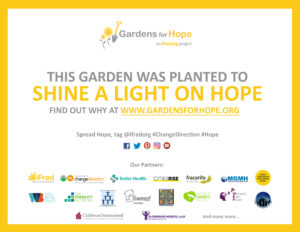 There are so many more reasons, but let’s start with 13. As we can argue all day about if suicide contagion is “real”, yet why not focus on Hope? Our goal is to come up with a Hope contagion, and we need your help to make it possible.
There are so many more reasons, but let’s start with 13. As we can argue all day about if suicide contagion is “real”, yet why not focus on Hope? Our goal is to come up with a Hope contagion, and we need your help to make it possible.
The reasons why we need to change direction to hope, now, are endless. We compiled many statistics on hopelessness, and as you will see they are shocking. But instead of focusing on the statistics, let’s just look at the news. The college entrance scandal, the #MeToo movement, weapon carrying to school, teen suicide & contagion, and more. Believe it or not, each and every one of these have something in common: HOPE.
When you really look at the research, it becomes clear: We must learn how to instill, grow, and expand Hope. The good news is, we can, and are, doing that. So here are our 13 reasons why it is time to #ChangeDirection to #Hope (all sourcing is listed, with direct links to studies, on Hopeful Minds):
- Hope is a universal concept, one that is easily understood across cultures.

- Hope is not something “soft”; there is solid evidence around the importance of hope and how it independently impacts many different life outcomes.
- The more hopeful we are, the less likely we are to bring weapons to school.
- Higher hope corresponds to greater physical and emotional well-being.
- Hope is a greater predictor of academic success than IQ.
- Hopeful people live longer.
- The higher the hope, the less likely you are to have depression and anxiety.
- The reverse is not true, so if you are depressed or anxious, there is always potential to grow your hope muscle to prevent future episodes.
- Hopeful people have a greater sense that life is meaningful.
- Hopeful people are more productive.
- Hope is a top leadership trait in the workplace.
- Hopeful people are less lonely, and more socially connected.
- Hope is Teachable.
We must be hopeful, before we can become resilient. How can you get involved in Hope?
- Plant a sunflower garden for hope. Print out a sign, put it up in your yard, church, or community center, and encourage others to learn about Hope.
- Teach hope in your community, school, club, or office, using our teacher training guides at Hopeful Minds.
- Get trained using a Hope badge, and ask people to download the 7 Cups peer-to-peer support app so that no matter what, each and every person always has someone to talk to when they can’t find own Hope.
If you are inspired by our work, and agree, please do like and share! #TimeToAct #ChangeDirection #Hope
This article was originally posted on PsychCentral. Read here.



Speak Your Mind